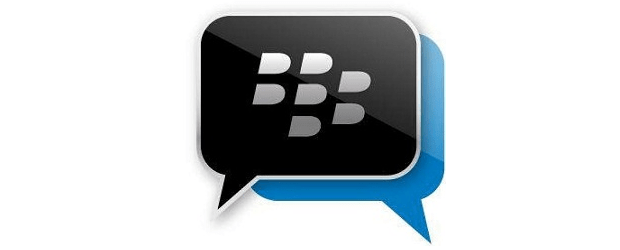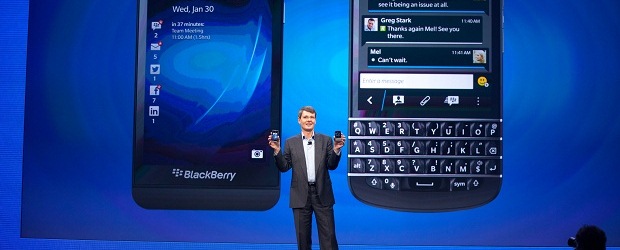Fairfax Financial has failed to find investors to partner with and take BlackBerry private.
Instead the Toronto investment company said it has signed a deal that it and other investors will put $1 billion into the struggling handset maker by selling convertible debentures. Fairfax, BlackBerry’s largest shareholder, will put up $250 million of that in a deal that it wants to finalize in the next two weeks.
Combined with the $2.6 billion in cash BlackBerry has on hand, that would give it $3.6 billion that could be stretched several years — particularly as it chops staff and what it considers non-essential projects.
However, the deal comes with a price: CEO Thorsten Heins will leave the company in two weeks when the deal is completed and be replaced by former Sybase Inc. chairman and CEO John Chen. After a new CEO is hired, Chen will become the company’s executive chairman, replacing current chair Barbara Stymiest. She will remain on the board.
The announcement means not only could Fairfax not find investors to back a privatization of BlackBerry, no other group of investors could be found either. BlackBerry founders Mike Lazaridis and Douglas Fregin had also been trying to put together a consortium that would meet with the BlackBerry board’s approval.
On the Toronto Stock Exchange BlackBerry stock dropped 13.8 per cent on the news to $6.97 within the first half hour of the start of trading. It stayed there at noon.
Fairfax chair and CEO Prem Watsa will re-join the BlackBerry board to become lead director and chair of the compensation, nomination and governance committee. Watsa resigned from the board so he could mount his attempt to take the company private.
Fairfax had been seeking partners in a group that would offer $9 a share to stockholders — at total of $4.7 billion — to take BlackBerry private and sort out its problems.
BlackBerry’s future is now uncertain: Can the company use the $1 billion to keep its parts intact and turn itself around, is it to be used to buy time for another buyer(s) to make an offer to take it private or will it be used to stabilize the company while parts are sold off?
The Toronto Star quoted Watsa telling Bloomberg News that there is no plan to break up BlackBerry.
Separately, Bloomberg columnist Matt Levine today wrote a piece that wonders if Fairfax was being cunning when it offered to try and find a group that would bid $9 a share. He suspects today’s $1 billion deal would have been rejected back then; now Fairfax has a better deal.
BlackBerry has already started to face the fact that its new Z- and Q-series handsets running on the next-generation BlackBerry 10 operating system won’t quickly improve the company’s finances so it is laying off 4,500 staff.
The news disappointed National Bank Financial analyst Kris Thompson. In a note to investors this morning he noted that a number of potential bidders “have been inside the tent” looking at the books behind closed doors. “Nobody liked what they saw. Why should we?” he asked.
Chen took over relational database maker Sybase Inc. in 1998 at a time when that company was facing headwinds and turned it into a datawarehousing and mobility management specialist. It was bought by SAP in 2010. Since then he has been sitting on a number of boards including The Walt Disney Company and Wells Fargo & Co.





